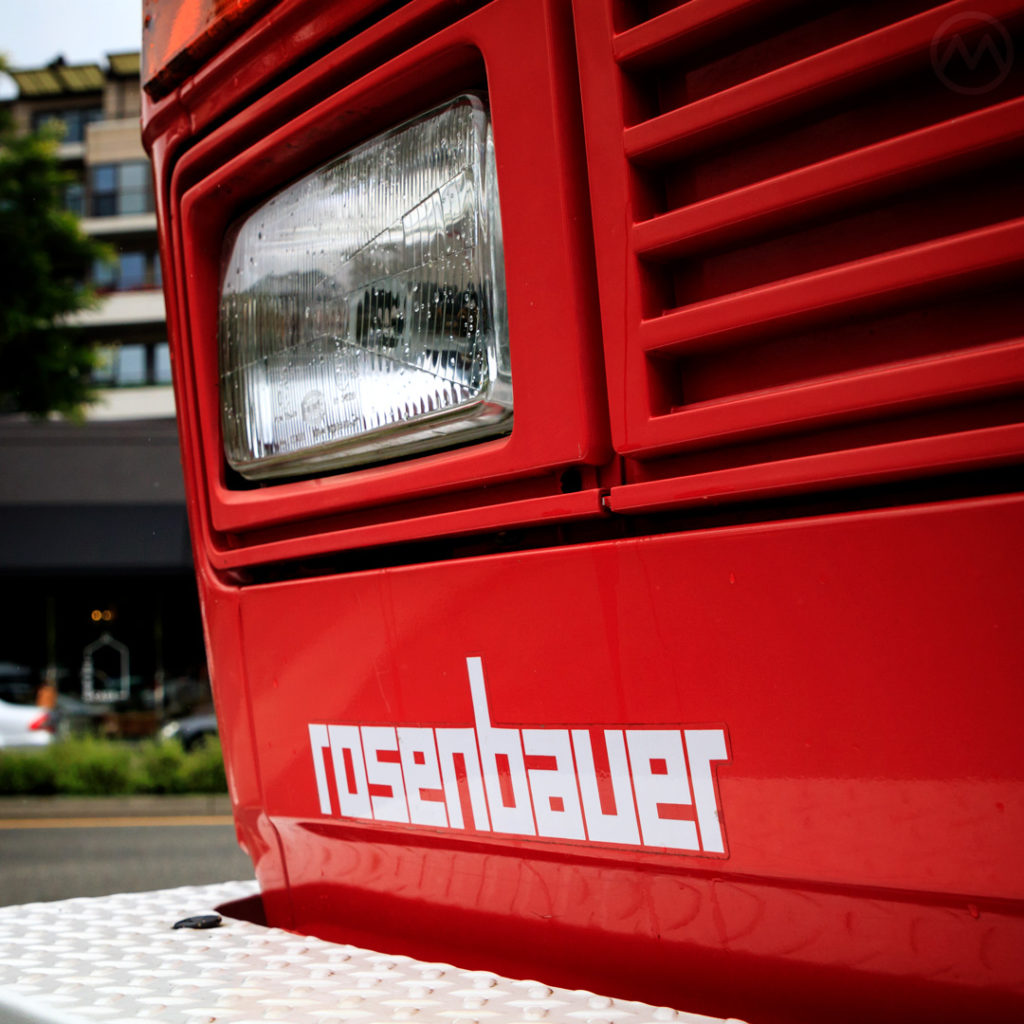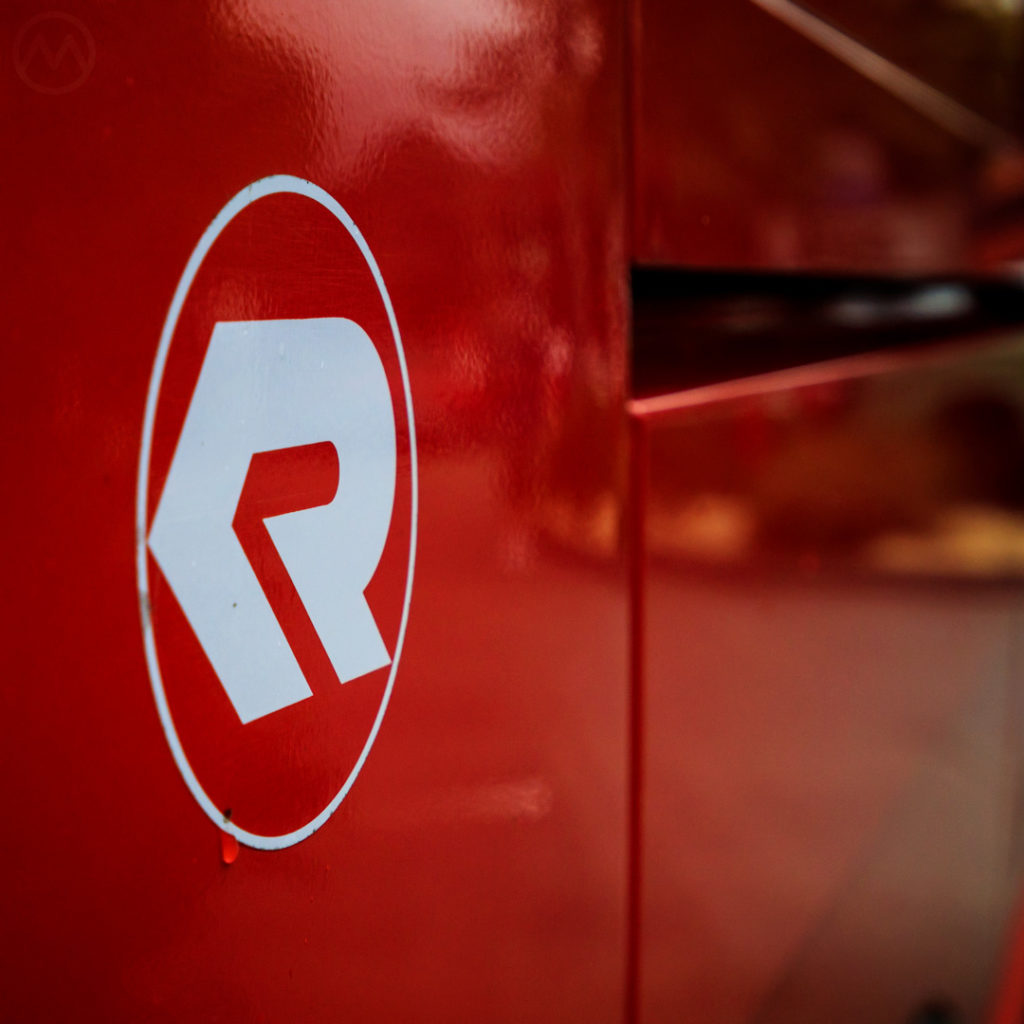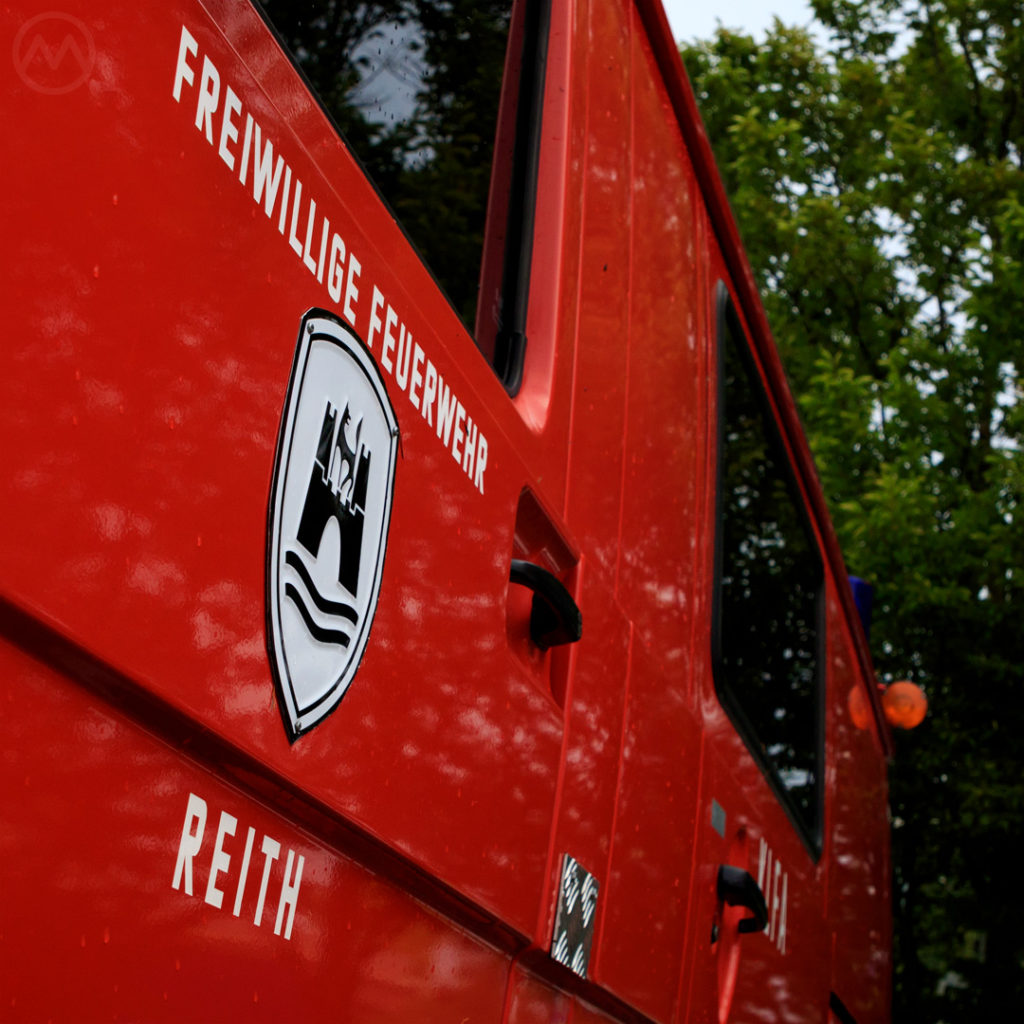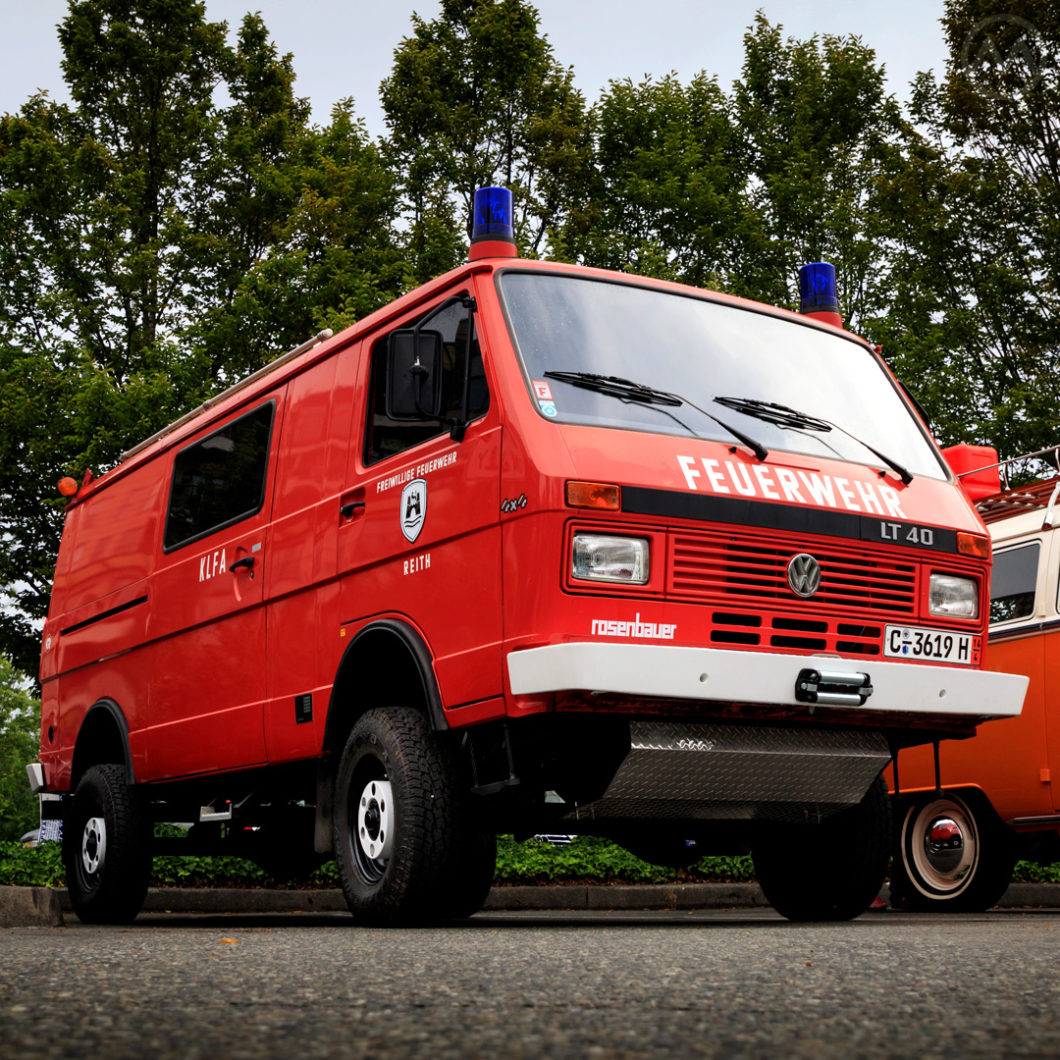Hundreds of thousands of VW LT vans were built over the truck’s lengthy lifespan – 1975 to 1996 – but just 1,250 of them were the lifted, go-anywhere 4X4 models. LT stands for “Lasten-Transporter,” loosely translated to “load transporter,” which describes the LT’s original mission.
It was created to offer VW something bigger for commercial truck buyers who grew out of Type 2 vans and allow VW to compete with commercial vans from Fiat, Citroën, Leyland, and others. Over time, it gained many variants, including this most specialized iteration – a Rosenbauer-converted fire engine.

The LT bowed in the spring of 1975 as a vast (and slow) van powered, at first, only by an Audi-derived 2.0L gas four (the same engine would later be found in the Porsche 924 and AMC Gremlin/Spirit).
A Perkins diesel four was added a year later and VW’s own D24 Diesel six in 1978 – eventually with a turbocharger. This engine was also seen in a variety of early eighties Volvo cars thanks to a licensing deal between VW and Volvo.
Even with the most powerful Turbodiesel, the LT never went anywhere in a hurry, though the biggest turbodiesels were more than adequate – but it was reliable and very popular as a commercial and a camper. LT models varied by gross weight – LT28’s up to 2.8 tons, LT40s up to 4.
The truck came in two wheelbases and a stretched rear version. Heavy duty ones – LT40 and up, had a solid axle front to handle the weight of heavy-duty commercial work. Pieces of the LT were also used on even larger trucks eventually – the cab may be familiar to the few people who drove Peterbilt 200s in the 1980s and 1990s.

The 4WD LT
Plans for a 4WD LT were developed in the early 1980s, with Köenigsbrunn-based specialist Sülzer designing a conversion and building the first 156 4WD LTs. Meanwhile, VW made some updates to the standard line of trucks to incorporate regular production, which it took over in 1985.
During the development with Sülzer, a more hard-core “allrad” version, the Steyr-Puch Noriker was developed jointly with VW, but it never made it to full production. There was also a conversion similar to, but pre-dating the Sülzer from Devries in the Netherlands, though very few were made.
VW built only long-wheelbase 4x4s, either vans or Dokas, and mostly LT40s. Giant anti-roll bars, a lift, and a New Process 208 transfer case (as seen on the Chevy Blazer) were part of the conversion.
The result was an extremely capable overlander just below the spec that the Unimog and Pinzgauer catered to – but quite costly – LT 4x4s were for specialized applications just like those other trucks.
Rosenbauer Fire Trucks
Rosenbauer Group, based in Leonding, Austria, began building firefighting gear in 1866. It built its first fire engines just after WW1 and by the 1970s was a powerhouse in firefighting equipment. Conversions of LTs for Austria’s volunteer firefighters were common in the 1980s and 90s though most LTs have passed out of service now (this retired example is a private import to the U.S., the LT was never sold here).

These vans could go anywhere in mountainous Alpine terrain, which made them very appealing in Austria. Austrian fire departments do many things just like first responders in other countries, and the Rosenbauer conversions were built to be versatile and hard wearing just like the base vehicle. Inside there’s often a big pump, hoses, room for various hose connections, tools like axes and saws, and respirator equipment.
The LT remained in production into 1996 with various small changes, but the 4×4 trailed off after 1992 and production ended in 1995. The second-gen LT shared much with the Mercedes-Benz Sprinter and while still a big van, bore little resemblance to the original. Most of these 4×4 fire trucks and vans were later replaced with conversions based on the Iveco Daily.
Because of their rarity and extreme capabilities, LT 4x4s are highly prized by go-anywhere overland truck fans.

